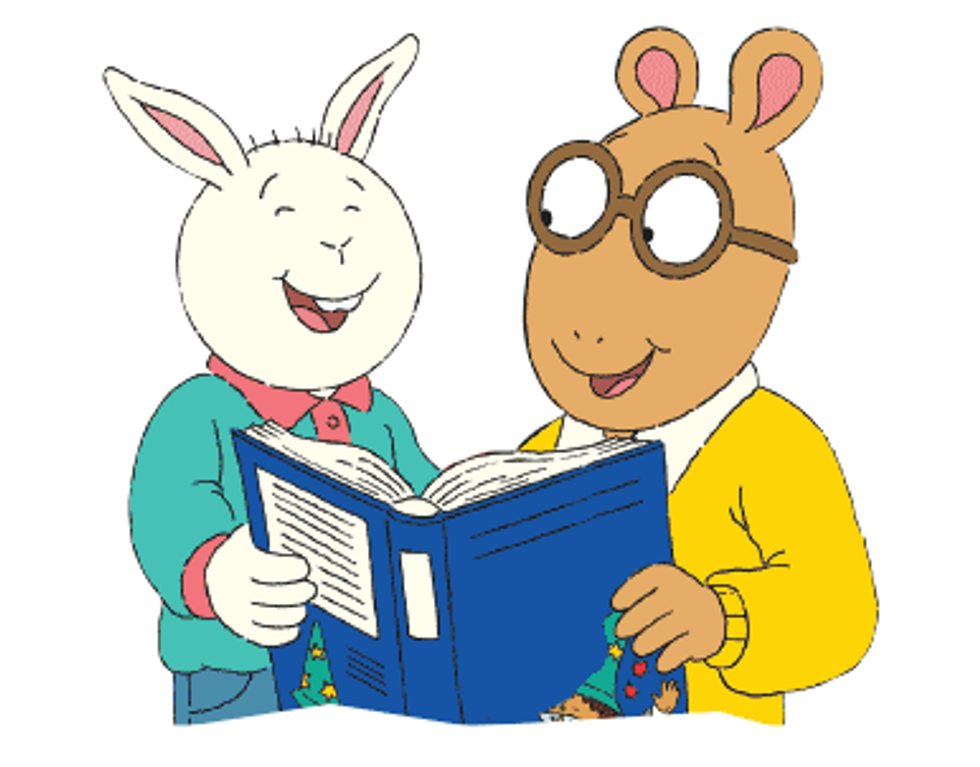On September 2nd, Arthur, one of the most unique and brilliant shows to air on television, turned 20. While many cartoon shows in the 90s such as Johnny Bravo, The Rugrats, Recess, Animaniacs, and SpongeBob Squarepants have spawned cult followings and even memes among millennials today, Arthur has become an inspiration for all generations. From the catchy and thought-provoking theme song, Believe in Yourself by Ziggy Marley, to the influential messages captured in each episode about family, friends, educational values, ethnicity, race, religion, disabilities, and even terminal illnesses, it 's no wonder that this show is still airing today.
However, with recent issues concerning politics, acts of racism and hatred towards other people/communities (and the media is sure doing a great job escalating the majority of these affairs), and the continuous lack of understanding with some mental illnesses/disabilities/diseases, it's important we continue to to hold onto the valuable lessons of this children's show, and pass it up and down to the older and newer generations alike. Arthur is more than just an educational kid's program about talking animals, but a way to understand the strange and unique world around us through various perspectives and stories.
So how did this 8-year-old talking aardvark become the poster child of reading and expanding the mind? It all started in 1991 when Marc Brown published the book, Arthur Meets the Presidents. The book captured the eyes and and interest of former First Lady, Barbara Bush, and she eventually called Mr. Brown about putting the book in the National Archives, which is a high honor in the literary society. The book featured Arthur and his family meeting the then president and First Family of the United States, The Clintons, and spending leisurely time with them in the White House (that sounds like some heck of an adventure for a young child). The full length episode was eventually aired on the Public Broadcasting Station (PBS), and became of one the most influential episodes of the show.
Arthur continued airing episodes of the First Families throughout their long run from the Bushes, to the Obamas. But, with the unpredictable win for Donald Trump, Mr. Brown feared for what this election would represent to the generation today, especially the children who rely on his book series and television program as a way to understand the changing society around them. In an interview conducted with Mr. Brown about Trump's election and the future of the children, he responded, "With all the work that I have done and invested in children being successful' said Brown, 'I worry about what would happen with children" (Huffington Post). As long as Arthur remains on our library shelves, and continues displaying new episodes/reruns on our television screen, then we have a chance to spread a positive message to the new generation through this show.
Besides the episodes, which emphasize the importance of accepting others who who they are despite their quirks and unusual hobbies (Geroge and his ventriloquist giraffe still give me nightmares from time to time), each character represents diversity through various family lifestyles, and even represents the "modern" families of the nation.
Arthur Read is represented as being part of the working class family, with both parents in the picture, along with a pestering younger sister named D.W., a baby sister named Kate, and a yellow dog named Pal.
Buster Baxter is also represented as being part of the working class family, but his parents are divorced and he lives with his mother. He also suffers from asthma.
Alan Powers (nicknamed the Brain) pushes himself academically in the classroom, and works at his Mom's ice cream parlor. In one episode, he mentions he has an uncle who has Aspergers.
Francine Frensky's character is devoted to Judaism, and celebrate various Jewish holidays. In addition, she is portrayed as being a tomboy, and participating in masculine sports including ice hockey, soccer, baseball, and football.
And etc.
So what lessons can us millennials and the newer generation learn from Arthur and his friends? Well, for one, expressing your voice and not letting others control your fate. Many Arthur episodes reflected on characters questioning their life, and eventually realizing it's ok to show off our true selves and talents. Also, you can learn life lessons from the people you interact with in your community. One episode that demonstrated this concept was when George Lundergren met a student in his school with Aspergers, and they eventually became friends after he was better able to understand the behaviors affiliated with the disability. Finally, the most important lesson of them all.....
So, happy 20th birthday to this amazing television show, and thank you for always holding a special place in our minds, hearts, and spirits. And, most importantly, allowing us to understand that we can do anything we set our minds to, and learning to respect and love the community around us.























